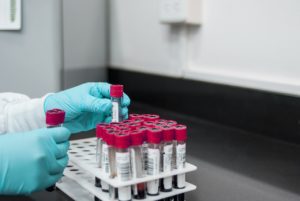Clinical trials can play a crucial role in understanding diseases, as well as identifying potential therapeutic options. This is especially important in newly identified or poorly understood conditions such as activated PI3K-delta syndrome (APDS), which was only identified ten years ago. According to a news release from global biopharmaceutical company Pharming Group N.V. (“Pharming”), the company is running a Phase 3 study to evaluate leniolisib for pediatric patients (aged 4-11) with APDS. As of February 21, 2023, the first patient enrolled in the study. The goal in the study is to determine if leniolisib could treat the underlying disease mechanisms safely and effectively.
Administered orally, leniolisib is an investigational small molecule PI3K inhibitor with selectivity for the PI3K-delta isoform. The drug is designed to regulate various cellular functions from survival and production to differentiation and proliferation. Through this, Pharming hopes that leniolisib could strengthen immune function. Phase 1, 2, and 3 studies on leniolisib have shown it to be both safe and well-tolerated in those ages 12+. Findings also showed that the treatment reduced lymph node inflammation. The FDA is conducting a Priority Review of the NDA for leniolisib and it is also being considered for approval in Europe.
Within this Phase 3 study, researchers seek to understand how safe, well-tolerated, and effective this treatment is for younger individuals with APDS. Altogether, an estimated 15 children will enroll. The study also hopes to understand how APDS affects quality-of-life (QOL) and how leniolisib may improve that. Moving forward, the company also hopes to run a study for children ages 1-6 to determine if the therapy is efficacious in this community.
What is Activated PI3K-Delta Syndrome (APDS)?
PIK3CD or PIK3R1 gene mutations cause activated phosphoinositide 3-kinase (PIK3) delta syndrome (APDS), a rare primary immunodeficiency disorder. First discovered in 2013, Normally, PIK3CD plays a role in producing p110 delta, a protein that helps turn on cell signaling pathways. This protein also contributes to T and B-cell growth and division. APDS is characterized by low levels of both T and B cells.
Potential symptoms of APDS may include:
- Chronic cough
- Frequent or recurrent infections (often in the ears, lungs, and sinuses)
- Viral infections such as cytomegalovirus or Epstein-Barr virus
- Clumped white blood cells
- Swollen lymph nodes, tonsils, or spleen
- Nodule formation in the airway or digestive tract
- Increased risk of lymphoma
Genetic testing is the only concrete way to diagnose this disorder. Because APDS is poorly understood, treatments are still being developed. The current standard-of-care focuses on symptom management and reduction. Treatment options may include antibiotics, antiviral therapy, stem cell transplants, and immunoglobulin replacement therapy.





